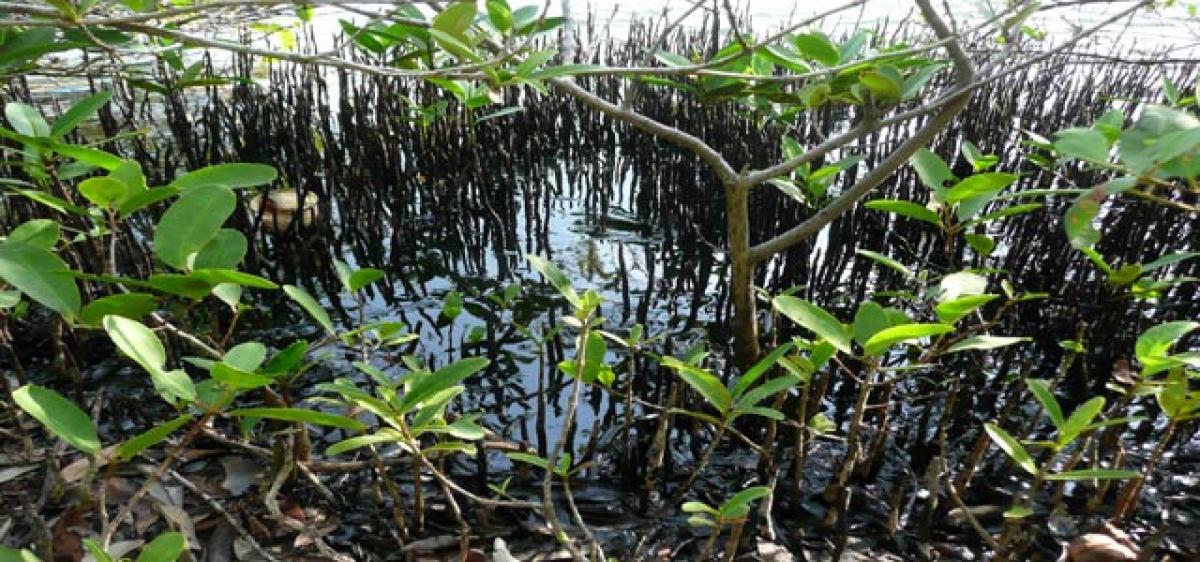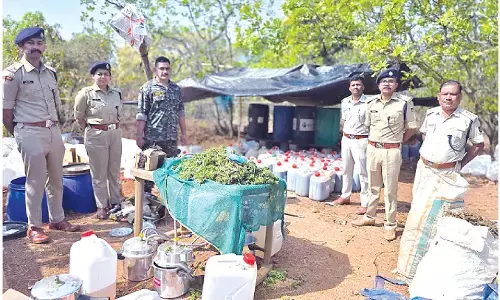Wetland ecosystems imbibe excess CO2 and mitigate climate effects

In the global effort to mitigate carbon dioxide levels in the atmosphere, all options are on the table--including help from nature.
In the global effort to mitigate carbon dioxide levels in the atmosphere, all options are on the table--including help from nature. Recent research suggests that healthy, intact coastal wetland ecosystems such as mangrove forests, tidal marshes and seagrass meadows are particularly good at drawing carbon dioxide from the atmosphere and storing it for hundreds to thousands of years.
Policymakers are interested to know whether other marine systems--such as coral reefs, kelp forests, phytoplankton and fish--can mitigate climate effects. A new analysis co-authored by a University of Maryland scientist suggests that, while coastal wetlands serve as effective "blue carbon" storage reservoirs for carbon dioxide, other marine ecosystems do not store carbon for long periods of time.
The research paper, published February 1, 2017 in the journal Frontiers in Ecology and the Environment, also notes that coastal wetlands can help protect coastal communities from storm surges and erosion. Coastal wetland areas are easier for governments to manage compared with ecosystems that reside in international waters, further adding to the strategic value of coastal wetlands in the fight against climate change.
"We compared many different coastal ecosystems and have made a clear case for including coastal wetlands in discussions about greenhouse gas mitigation," said Ariana Sutton-Grier, an assistant research scientist at UMD's Earth System Science Interdisciplinary Center and a co-lead author of the research paper.
"Coastal wetlands store a lot of carbon in their soils and are important long-term natural carbon sinks, while kelp, corals and marine fauna are not." The research paper integrates previous data on a variety of coastal and marine ecosystems to determine which systems are best suited to mitigate climate effects.
To make this assessment, Sutton-Grier and her colleagues evaluated how effectively each ecosystem captures carbon dioxide--for example, by plants using it to build their branches and leaves--and how long the carbon is stored, either in plant tissues or in soils. Coastal wetlands outperformed other marine systems in just about every measure.
For example, the researchers estimated that mangrove forests alone capture and store as much as 34 million metric tons of carbon annually, which is roughly equivalent to the carbon emitted by 26 million passenger cars in a year. Estimates for tidal marshes and seagrass meadows vary, because these ecosystems are not as well mapped globally, but the total for each could exceed 80 million metric tons per year.
All told, coastal wetlands may capture and store more than 200 metric tons of carbon per year globally. Importantly, these ecosystems store 50-90 percent of this carbon in soils, where it can stay for thousands of years if left undisturbed. "When we destroy coastal wetlands, for coastal development or aquaculture, we turn these impressive natural carbon sinks into additional, significant human-caused greenhouse gas sources," said Sutton-Grier, who is also an ecosystem science adviser for the National Ocean Service at the National Oceanic and Atmospheric Administration.








